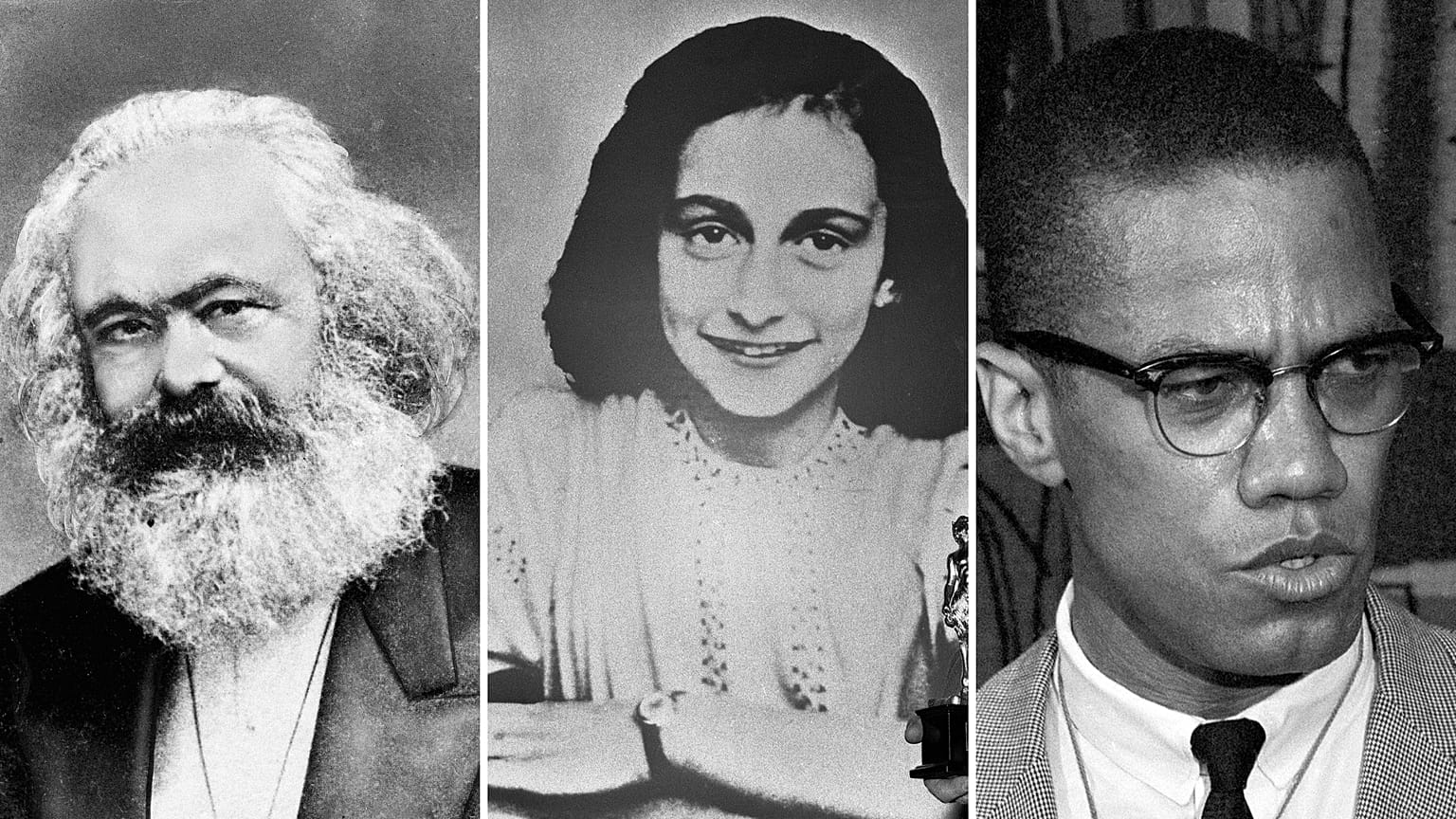The beginning and the end of great thinkers. We take a look at today's significance for three revolutionaries: Karl Marx, Anne Frank and Malcolm X.
21 February 1848, 1945, and 1965: The beginning and the end of great thinkers
 ADVERTISEMENT
ADVERTISEMENT
 ADVERTISEMENT
ADVERTISEMENT
Today’s a day of three different monumentally significant cultural moments. The first was a publication, the next two were the early ends of lives that contained magnitudes.
Let’s start with 1848 and two German philosophers who have a brand new pamphlet on their ingenious economic system, aimed at disrupting the class struggle imposed by capitalism, about to publish.
The two economists are of course, Karl Marx and Friedrich Engels. Living in London at the time, they were aware that the burgeoning political philosophical theory of communism needed to be put into a digestible form for it to truly grip the public.
The pair had both been working on developing the theoretical backing to communism for the past five years, both sharing in the belief that the proletariat of Europe were being held back by the exploitation of their labour and that revolution was inevitable.
Joining the secret radical organisation League of the Just, the pair started working on ‘The Communist Manifesto’. The resulting pamphlet was first published on this day in 1848. For the first time, communism was detailed plainly and made publicly available. It came out as many parts of Europe saw mass protests and rebellions against feudalist systems.
Marx and Engels committed themselves to their new political philosophy and Marx would later publish his masterpiece on communist theory ‘Das Kapital’. But the influence of that first pamphlet is undeniable today, for better or for worse.
Marxism has formed the basis of much economic thought that prioritises the rights of workers, the lower classes, and continues to inspire philosophies that desire a fairer world. Equally, without the foundational texts of Marxist communism, the course of the Soviet Union and China with all its violent excesses, may have been completely different.
1945: Anne Frank meets her grim end
What could have been? Today, Anne Frank is one of the most ubiquitous names of the Holocaust. Just 13 years old when she went into hiding in Amsterdam, the young Jewish girl documented her time in the annex in her diary.
Frank’s family was eventually betrayed and Anne was taken to the Bergen-Belsen concentration camp in Germany where she was murdered by the Nazis on this day in 1945, aged 15.
Anne Frank would have become just another of the six million names included in the list of Jews killed by the Nazi regime were it not for her father Otto’s publication of that diary. Through it, the world learned of a young girl’s experience growing up under systematic oppression. It’s a rare and beautiful insight into how an intelligent child’s mind matures in the worst of circumstance. Her writing is youthful but brilliant, the mark of a literary power that was never given the chance to grow.
1965: The murder of Malcolm X
Born just four years before Anne Frank, Malcolm Little also grew up under severe oppression as a black man in the United States of America. Under the name Malcolm X, he would become a vocal figure of the civil rights movement in the 50s and 60s.
Malcolm X rose to prominence after joining the Nation of Islam, a religious and political organisation preaching Black self-reliance. Much like with Marx and Engels’ communism above, it’s impossible to sum up Malcolm X’s biography and worldview in this short article. In short though, X was an unapologetic advocate for the rights of Black men and women in the US, critical of the integrationist approach of his peer Martin Luther King Jr., he was controversial in his day and remains so today.
After splitting with the Nation of Islam in 1964, he was assassinated by three members of the organisation on this day in 1965. His legacy remains one of tireless pursuit of racial justice, and the refusal to bow down to an oppressor class.

















